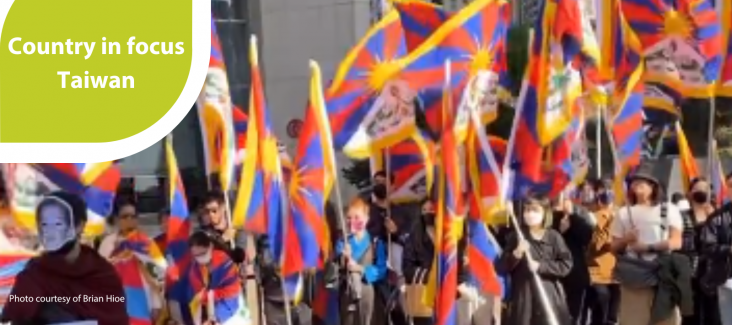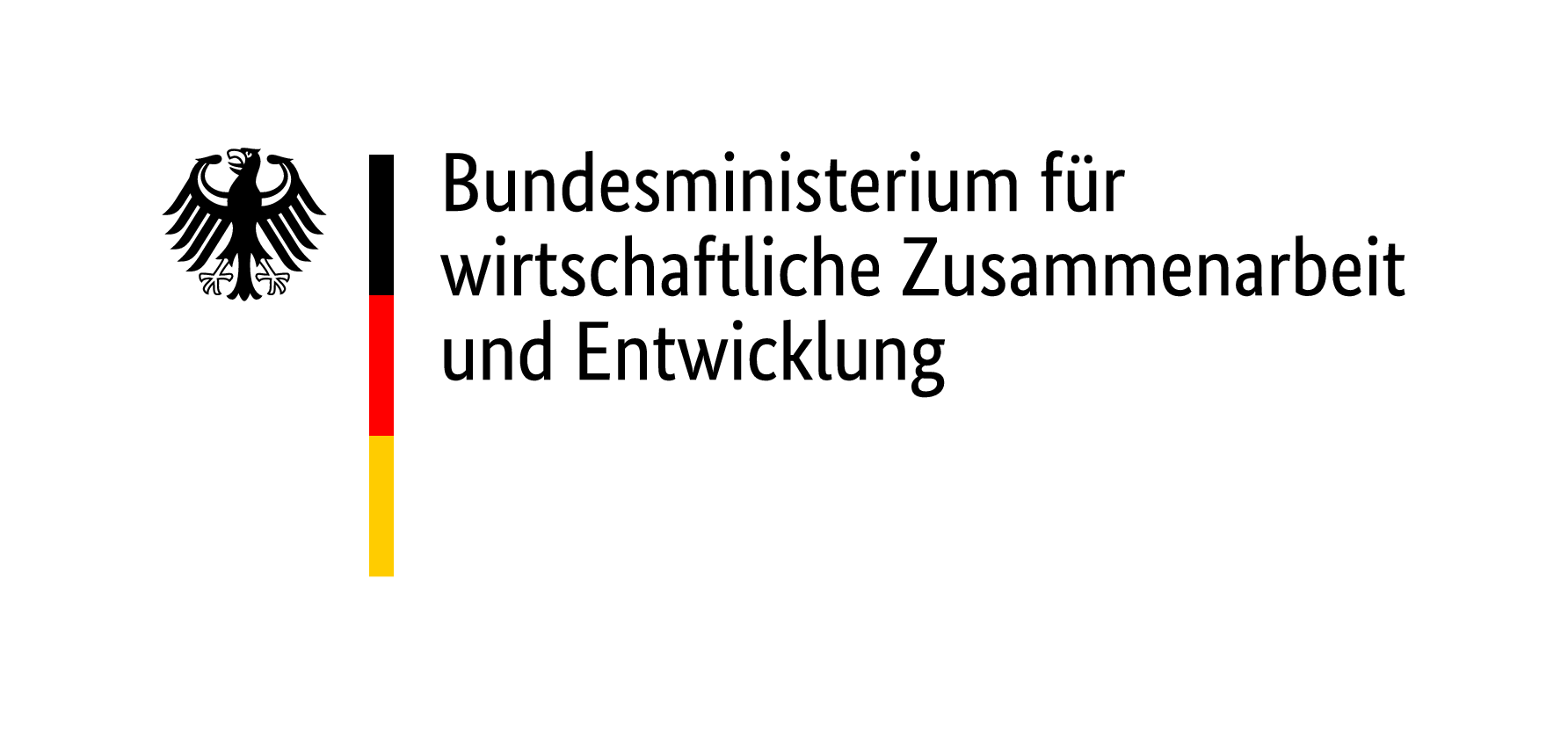Could tell a little bit about the political and participation culture in Taiwan and how the democratic transition happened so successfully?
Taiwan is now a fully-fledged democracy. However, previously, we had experienced quite a long period of authoritarian rule for almost 40 years and before that, Taiwan was under Japanese colonial rule for 50 years. The Taiwanese people have been pursuing democracy for over a century. Since the days when Taiwan was still under Japanese rule, people already wanted to have the right to govern themselves. But the democratic dream was fully realised only after Taiwan transitioned from an authoritarian regime to an electoral democracy in the early 1990s. It's been a long road, a long journey on which many people sacrificed their lives or freedom to fight for democracy.
Also watch our webinar dedicated to Taiwan and East Asia region "Democratisation as self-defence, disinformation and activist journalism"
One thing that distinguishes Taiwan from other democracies is that we actually have a pretty decent voter turnout. The average voter turnout rate in Taiwan is around 67%, which is higher than that in many mature democracies. I would argue that one of the reasons is that we really cherish the right to vote.
Another feature of Taiwan's democratic politics is that it's quite vibrant. You get to see lots of street protests and even brawls inside the legislative chamber.
It’s also worth mentioning that in addition to representative democracy, Taiwan has quite robust direct democratic institutions.
What changes do you think the Sunflower Movement brought to Taiwanese activism and democracy?
The Sunflower Movement happened in March 2014. It was a mass civil society protest against the government's policy toward China. It essentially blocked the signing of a service trade agreement with China.
Since then, there has been a growing sense, especially among young people in Taiwan, that we need to preserve the free and democratic way of life. People have become very worried about China's influence on Taiwan. We certainly don't accept China's claim that Taiwan is just a province or a part of China. This is also the background on which the current ruling party won two rounds of presidential and parliamentary elections in the last ten years.
The Taiwan movement toward a democratic system is in a way pretty different from the region. And why do you think it's that?
Let me explain a little bit more about how the transition from authoritarianism to democracy worked in Taiwan. It was a peaceful transition, and Taiwan has often been cited in the literature as an example of democratisation through elections. We had the first nationwide parliamentary elections in 1991-1992. In 1996, we began to have direct presidential elections. Through elections, the old authoritarian party gradually lost its power and lost its grab on society. We witnessed the emergence of a vibrant opposition party, the currently ruling Democratic Progressive Party (DPP). Electoral/partisan competition was the driving force of Taiwan's democratisation.
Could you give an overview of the direct democracy instruments available at this moment?
To begin with, our constitution guarantees the right to recall. But back in the days when Taiwan was under authoritarian rule, as one can imagine, this kind of right was just window dressing. Since 1980 the Elections and Recalls Act has regulated how a recall vote could take place. But the initial regulation set a pretty high threshold for such votes, so there were no successful cases of recall. In the wake of the Sunflower movement, the Elections and Recalls Act was revised around 2016-2017 to lower the thresholds. Since then there have been quite a few instances of recall in Taiwan. Taiwan has what is called a full recall, which means that one can recall elected officials for any reason, and some people now worry that it can be abused by political parties.
We also have initiatives and referendums. The first version of the Referendum Act was enacted in 2003, but it set a pretty high voter turnout threshold. The turnout requirement for the nationwide initiatives and referendums was 50% of the electorate. The old Referendum Act also required about one million signatures for citizens to propose a ballot proposition. Of the first six nationwide referendums, two were proposed by the President, and another four were proposed by the two major political parties. As one can see, under these rules, the referendum process was just another venue for party competition.
In 2018, the Referendum Act was overhauled. The required signatures were lowered to about 300,000, and there is a new approval threshold. Now, if the 'Yes' option is supported by more than 25% of the electorate and receives more votes than the 'No' option, the referendum proposition will be considered passed. Immediately after the referendum reform, we saw a boom of referendums in 2018.
In 2018, ten referendum issues were voted on, and in August 2023, none made it to the ballot. How would you explain such a rollercoaster in direct democracy usage?
Yes, there was supposed to be a Referendum Day this year, but we didn’t have any proposition to vote for because recently no proposals managed to pass the pre-circulation review.
Let me explain first why there was such a boom of referendums in 2018: We had a new Referendum Act, and it became quite easy to propose a ballot proposition. It was also a very powerful tool for political competition because the referendum was held on the same day as nationwide elections.
In 2019, the Referendum Act was revised again to separate referendums from elections. After that, while still being fairly easy to propose, a referendum has become less appealing for politicians to use. We also want to develop a system of pre-circulation review and pre-election judicial review to make sure that the propositions are lawful and suitable for the popular vote. And many people think that we need to spend more time deliberating on the issue before we vote. As a result, there is a cooling of the referendum usage.
I believe Taiwan presents an example of how the rules of the game really matter in shaping the dynamics of referendum politics. If we want referendums that work well, we need to think about properly structuring the process. Otherwise, referendums can become a very populist thing, a way to express voters' anger or prejudice.
The presidential elections are scheduled in Taiwan for 2024. What would they mean for democracy?
The upcoming elections may have some significance in Taiwan's democratic history. Taiwanese society is divided and people here have different visions of the future of Taiwan. Some want to maintain the status quo as an independent democracy, whereas others think that we had better maintain good relations with China by accepting some sort of the "One China" formula. In a sense, the 2024 presidential and parliamentary elections can be viewed as a de facto referendum on the future of Taiwan.
Another important point of interest is that party turnover has occurred in Taiwan every eight years in the last two decades or so. Now, the current ruling party has been in power for almost eight years. So, whether the DPP will retain power by winning the presidency and the majority of the parliament is still a big question. In recent days, for instance, the opposition tried to form a joint presidential ticket but failed.
Lastly, with the threats to democracy more and more creeping in from many parts of the world, from talking to you I had a feeling that the people of Taiwan are full of trust in democracy. What is the recipe?
Well, if I gave you the impression that Taiwan people very much believe in democracy...(laughs). In the current geopolitical situation, the will of the people to defend their country and their democracy is often being tested. While I am confident that Taiwan citizens do believe in democracy, I should add that Taiwan is also a target of authoritarian interference, and we have a huge problem of disinformation. Political polarisation also poses a serious issue here, as well as populist allure. We do have some problems here as well.
Because we are a very free and democratic country, we have robust political debates every day on our cable TV, and above all, we have a rather vibrant civil society. Besides, the paper-based voting system we have is old but trustworthy, so people do believe in the integrity of the voting process. We certainly want to make sure that democracy is the only game in town, and that means voting really matters. In any event, we really hope to resolve all our disagreements through ballots, not bullets.
This article was written in connection with the Life as an activist project. Five countries, five democracy activists, five mini-documentaries! The following video is the Life as an activist project documentary.
Mini Documentary - Brian Hioe explains the realities and challenges of democracy activism in Taiwan


